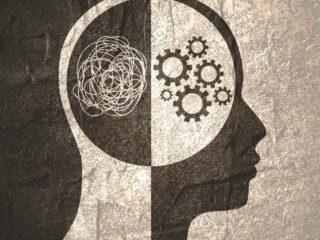“Doctor shopping” is common when a person has an addiction to prescription medications. Often, they are self-medicating and not using the medicine as prescribed. As a result, they are using more of the drug and run out before getting another prescription. Find out more about what doctor shopping is and how it relates to addiction.
What Is Doctor Shopping?
Doctor shopping is the practice of visiting different doctors with the objective of obtaining a prescription for a medication that is being misused. For example, someone with a prescription opioid use disorder will go to different doctors and use different pharmacies to attempt to get multiple prescriptions to support their addiction.
It is worth mentioning that doctor shopping for prescription opioids is not the only type of drug people will attempt to get. Some people will doctor shop for stimulants, antidepressants, muscle relaxers, and sedatives.
Are People with Substance Use Disorders the Only Ones Who Doctor Shop?
While doctor shopping is associated with people who have substance use disorders, they are not the only ones who will doctor shop. Another type of person that will doctor shop is someone who intends to sell prescription medications illegally.
There is a huge demand for prescription drugs on the street. So those that doctor shop and obtain large quantities of prescription drugs could potentially have an illegal way to earn money.
What Are the Signs Someone Is Doctor Shopping?
If you are concerned a loved one is doctor shopping, you should look for the following signs:
- They use excuses to attempt to get more of the drug, such as saying they lost the prescription, they lost pills down the sink, or someone else stole it from them.
- The person will visit doctors in different areas to attempt to get their medication.
- Some people will travel out of state to get a prescription.
- They will pay cash for their prescriptions and doctor visits instead of using their insurance.
Signs Someone Has a Prescription Drug Use Disorder
- The person becomes defensive when questioned about their prescription drug use.
- The person has a “secret stash” of the prescription medication.
- The person is a “pill counter” and will know exactly how much of the drug they have.
- The person becomes agitated, scared, and even angered when they cannot get a refill, their dosage is reduced, or they get a smaller amount of pills than anticipated.
- The person is self-medicating and not taking the medication as prescribed.
- The person will engage in drug-seeking behaviors when they cannot get a prescription.
- The person will have financial problems.
- The person cannot function without taking the drug.
- The person looks for alternative substances when they cannot get a prescription.
How States Are Addressing Doctor Shopping
Due to the opioid crisis, many states have adopted some form of prescription monitoring to help reduce the likelihood of prescription drug misuse. Part of this monitoring requires pharmacies to share information about the person obtaining the prescription.
As a result, it makes it more difficult for someone to doctor shop and get multiple prescriptions, even when using different pharmacies. Unfortunately, some people attempt to get around state monitoring by using fake names and identification.
What Can You Do to Help Someone Who Is Doctor Shopping?
Part of the problem with the disease of addiction is someone who is doctor shopping may not want to admit they have a substance use disorder. Approaching them could result in them further withdrawing from family and friends.
However, when you are concerned, a good place to start is to educate yourself about the disease of addiction. Another thing you can do is learn how to avoid enabling someone with a substance use disorder. You could also join a support group for family and friends of people with addictions.
When you are ready to approach the person about their doctor shopping and substance misuse, it can be beneficial to stage an intervention with a professional interventionist. This individual has the training and experience to help friends and family confront the individual in such a manner to make them aware of how their addiction is affecting those around them.
In some cases, an intervention can result in the person realizing they have a problem and encourage them to start an addiction treatment program. In other cases, the person may still be reluctant to admit they are misusing drugs.
What Prescription Drug Addiction Treatment Options Are Available?
When someone is ready to get help for their prescription drug addiction, different program options are available, such as inpatient rehab, PHP rehab, and outpatient rehab. However, the person should plan on completing medical detox at the treatment facility before transitioning to their treatment program.
Medical detox is an essential first step for recovery. In addition, prescription opioids and other substances require weaning. Some people can also benefit from medication-assisted treatment (MAT), which uses non-addictive substances to help lessen the more severe withdrawal symptoms.
Prescription Drug Medical Detox and Treatment in Columbus, OH
At Ohio Addiction Recovery Center in Columbus, OH, we offer several customizable treatment programs to help you take the first steps to recovery from your prescription drug use disorder. We also provide medical detox at our addiction recovery center. Contact us today to start your treatment.






